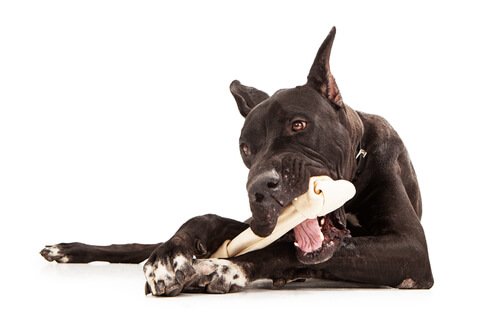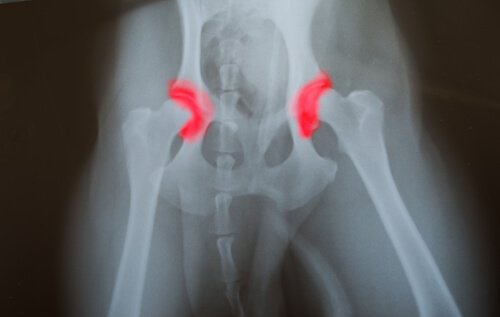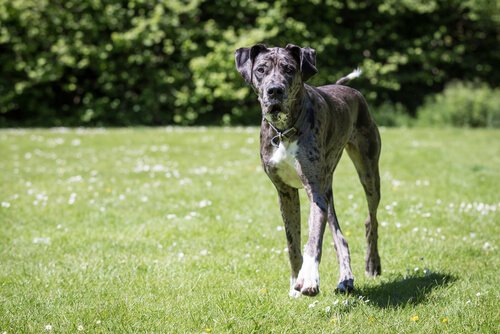General tips for feeding large dogs

General tips for feeding large dogs
An animal’s nutritional needs depend on his metabolism, level of physical activity and size. Feeding large dogs is very different from feeding other breeds, and owners must be knowledgeable in order to nourish their pet correctly.
Nutritional needs of large dogs
At birth, the average puppy will weight between 120 and 550 grams. The amount of food you give to your pet will depend on his size.
In general, you should know the following things about these animals’ nutritional needs:
- Medium-sized dogs require a diet that’s made up of at least 22 grams or at most 25 grams of animal protein.
- As for fats, the maximum amount they should eat per day is 82.5 grams. The recommended average amount is 13.8 grams.
- As for vitamins and minerals, vitamin A and E should be consumed the most in their diet, among others. Calcium, phosphorus, and potassium are the most important minerals in a large dog’s diet.
The Association of American Feed Control Officials (AAFCO) publishes nutritional profiles on a regular basis and updates about the nutrients that best suit your pet.
Due to these guidelines, it’s becoming easier to know exactly what your pet needs to be healthy and to prevent possible diseases and nutritional deficiencies.

The consequences of nutritional imbalances
25% of veterinary appointments are related to orthopedic diseases, as well as osteoarthritis. In at least =25% of these cases, the disease is caused by an unbalanced diet that’s low in calcium and other essential nutrients.
Contrary to what one might think, overfeeding a puppy can be more harmful than malnutrition. Although the puppy won’t be getting the necessary ingredients for a good period of time, he’ll have his “growth spurt” once his diet has been rebalanced.
If a puppy is overfed, he’ll gain weight and grow at a faster rate than advised. This will put too much stress on his skeleton and could cause the following diseases:
- Osteochondrosis
- Hip dysplasia
- Fragmentation and fissure of the coronoid process
In 1974, one study analyzed 12 pairs of Great Danes that followed diets that were high in proteins, phosphorus, and calories. The previously mentioned diseases were more prevalent in dogs that were fed these diets.

Compared with large dogs that have an unbalanced diet, those that ate a balanced one had fewer diseases associated with overgrowth. Hip dysplasia was one of the most common diseases in large, overfed dogs.
In adults, overfeeding causes a series of different health problems. The deterioration of the joints seems to be one of the most common symptoms in older dogs.
Remember, in order to have a balanced diet like the one mentioned above, your dog will require exercise on a regular basis. The necessary amount of exercise will depend on his breed. Although you may feed your pet correctly, problems can also arise from a sedentary lifestyle.